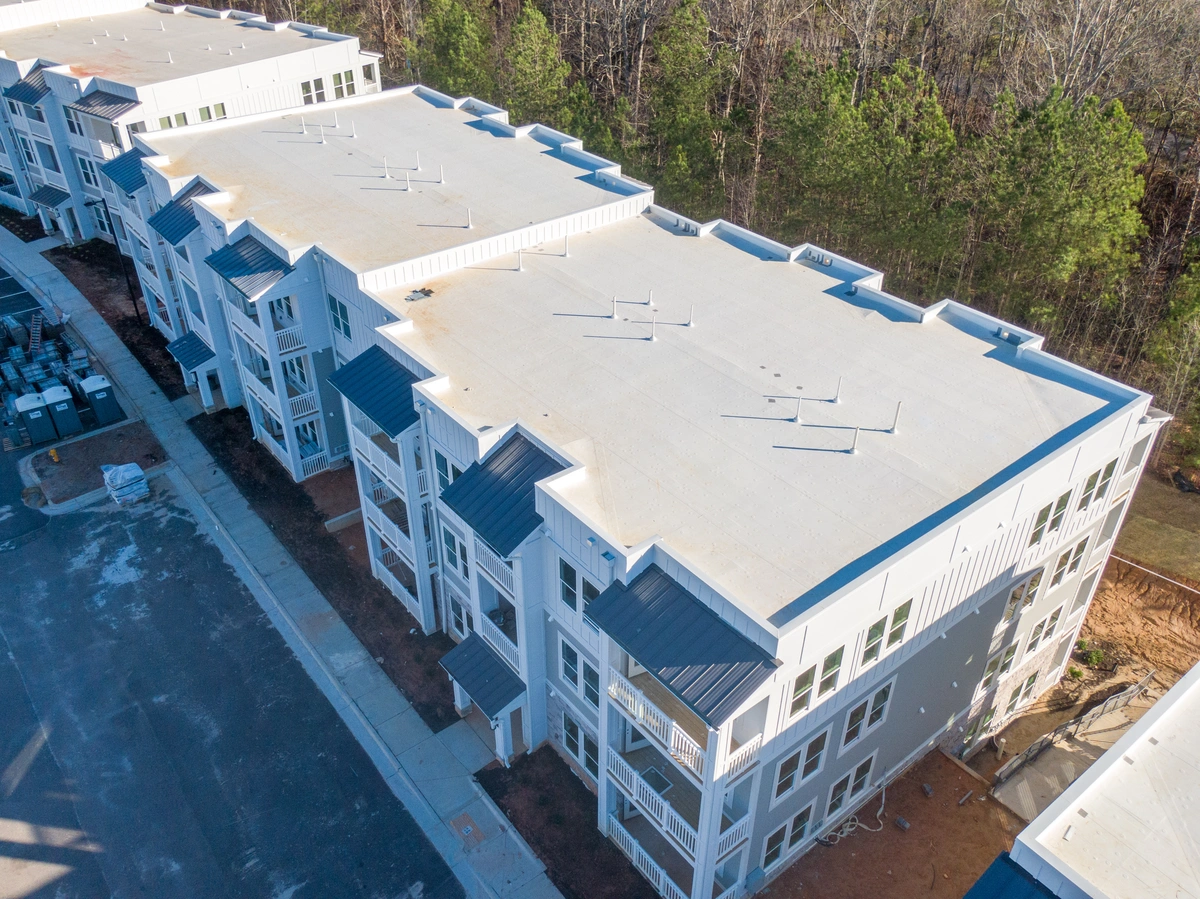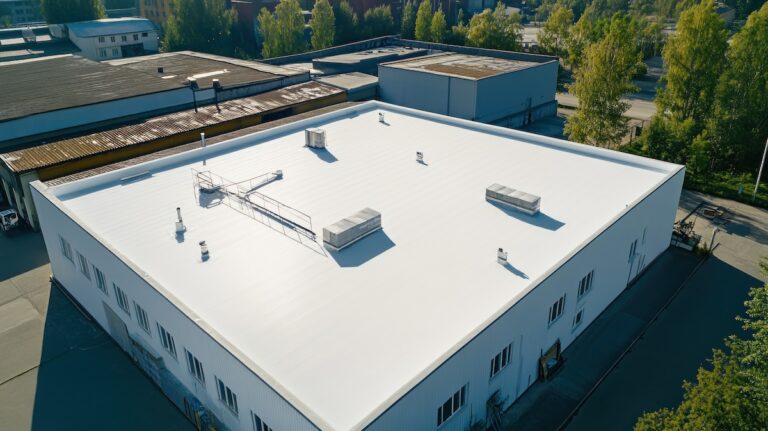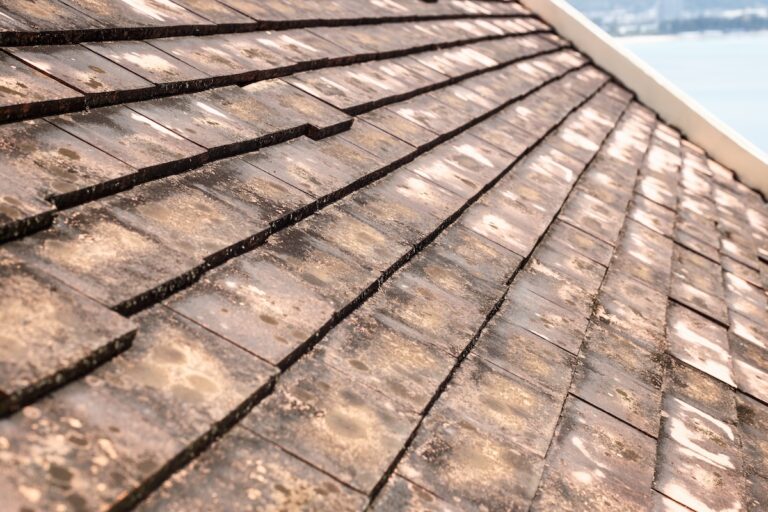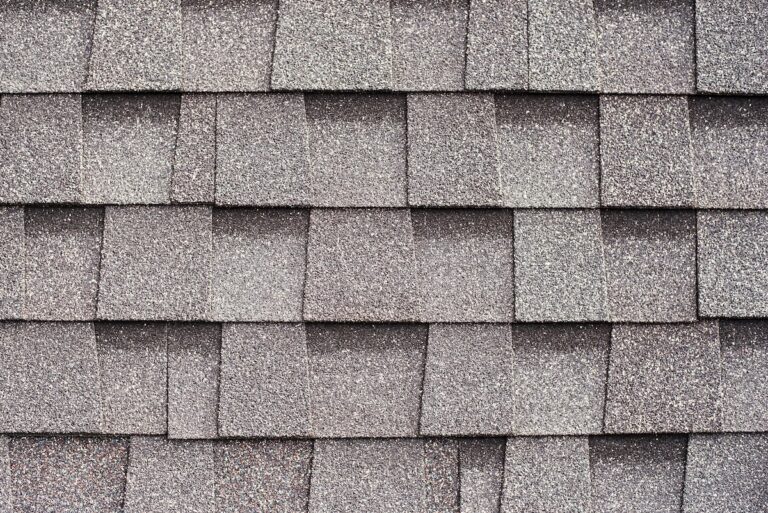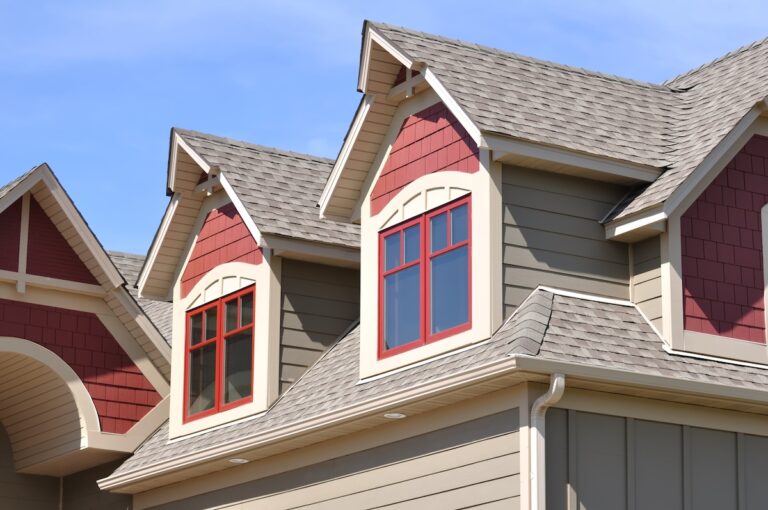When it comes time to install a new commercial roofing system, two materials consistently stand out as industry favorites—TPO (Thermoplastic Olefin) and PVC (Polyvinyl Chloride). Both offer a range of benefits that make them suitable for different applications, but how do you decide which one is right for your building?
In this guide, we’ll break down:
- The key differences
- Advantages
- Main considerations of TPO vs. PVC roofing
What is TPO Roofing?
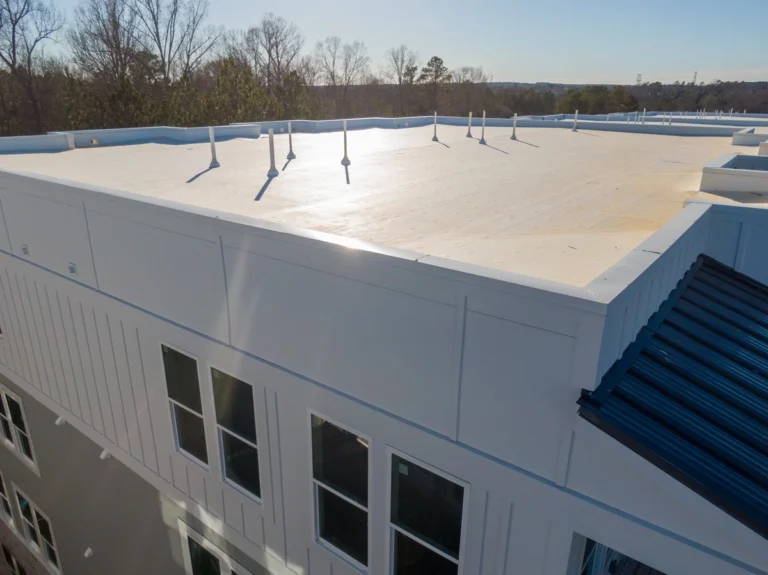
TPO roofing is a single-ply membrane made from a blend of polypropylene and ethylene-propylene rubber. It is known for its durability, energy efficiency, and cost-effectiveness. TPO membranes are typically available in white, gray, and tan, and are installed using various methods, including mechanical attachment, chemical adhesion, and ballasting.
✅ Benefits of TPO Roofing
- Cost-Effective: TPO is generally more affordable than PVC, making it a popular choice for budget-conscious projects.
- Energy Efficiency: Its light-colored surface reflects UV rays, thereby reducing cooling costs during hot weather.
- Durability: Resistant to punctures, tears, and impact damage.
- Eco-Friendly: Recyclable at the end of its life cycle, contributing to sustainability efforts.
- Ease of Installation: Available in wide sheets, which means fewer seams and a quicker installation process.
❌ Drawbacks of TPO Roofing
- Longevity: Generally has a shorter lifespan compared to PVC.
- Quality Variability: Not all TPO products are created equal; some may be prone to premature failure.
- Chemical Resistance: Less resistant to certain chemicals compared to PVC.
What is PVC Roofing?
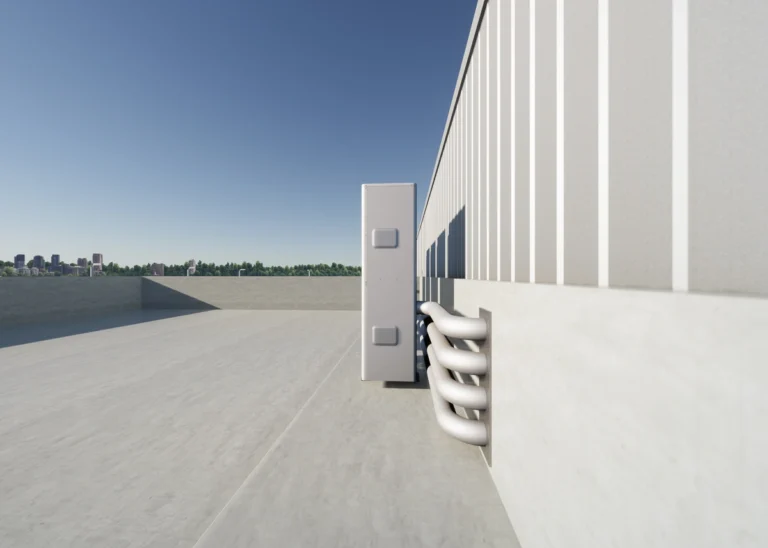
PVC roofing, or Polyvinyl Chloride roofing, is another single-ply membrane known for its excellent performance in commercial applications. PVC membranes are made from a type of plastic and are available in various colors, though white is the most common due to its energy-saving properties.
✅ Benefits of PVC Roofing
- Durability: Known for its long lifespan, often lasting 20-30 years with proper maintenance.
- Chemical Resistance: Highly resistant to various chemicals, making it suitable for industrial applications.
- Fire Resistance: PVC membranes are inherently fire-resistant, which can be a significant safety feature.
- Strength: High tensile strength and resistance to punctures and tears.
- Energy Efficiency: Reflects UV rays, similar to TPO, reducing cooling costs.
❌ Drawbacks of PVC Roofing
- Cost: Generally more expensive than TPO, which can be a deterrent for budget-conscious projects.
- Flexibility: Less flexible in cold temperatures compared to TPO.
- Environmental Concerns: The manufacturing process involves chemicals that are not as eco-friendly as those used in TPO production.
Side-by-Side Comparison
To make your decision easier, here’s a detailed comparison of TPO vs. PVC roofing based on several key factors:
Cost
- TPO:
- Initial cost is lower.
- Installation is generally quicker and cheaper.
- PVC:
- Higher initial cost.
- May offer better long-term value due to its durability.
Durability and Longevity
- TPO:
- Average lifespan of 15-20 years.
- Good resistance to punctures and tears.
- PVC:
- Average lifespan of 20-30 years.
- Superior resistance to punctures, tears, and chemicals.
Installation
- TPO:
- Available in wider rolls, resulting in fewer seams.
- Multiple installation methods.
- PVC:
- Typically more labor-intensive to install.
- Requires experienced installers to ensure durability.
Energy Efficiency
- TPO:
- Reflective surface reduces cooling costs.
- PVC:
- Also reflective, offering similar energy-saving benefits.
Environmental Impact
- TPO:
- Recyclable and generally considered more eco-friendly.
- PVC:
- Manufacturing process involves harmful chemicals; less environmentally friendly.
Fire Resistance
- TPO:
- Moderate fire resistance.
- PVC:
- Excellent fire resistance.
Chemical Resistance
- TPO:
- Less resistant to certain chemicals.
- PVC:
- Highly resistant to a broad range of chemicals.
Applications and Suitability
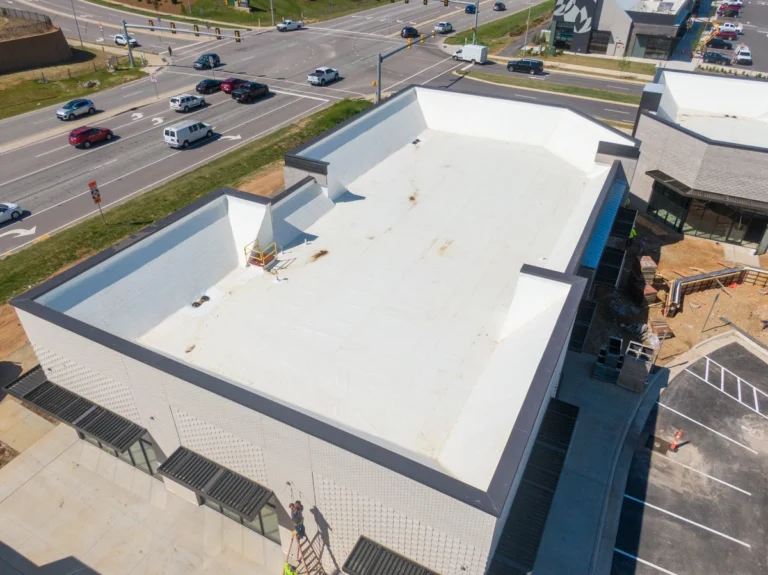
Wondering if the roof system is right for you? Here are some things to keep in mind.
Commercial Buildings
For most commercial buildings, the decision between TPO and PVC will come down to budget, expected lifespan, and specific environmental conditions.
- TPO:
- Ideal for buildings where budget constraints are a primary concern.
- Suitable for environments with moderate chemical exposure.
- PVC:
- Best for buildings requiring a high level of chemical resistance.
- Suitable for areas with higher fire safety requirements.
Industrial Facilities
Industrial facilities often face harsher conditions, making PVC the go-to option due to its superior chemical and fire resistance.
- PVC:
- Provides better protection against industrial chemicals.
- Offers enhanced fire safety features.
Green Buildings and Sustainability Projects
For projects with a strong focus on sustainability, TPO is often the preferred choice due to its recyclability and lower environmental impact.
- TPO:
- Recyclable, contributing to green building certifications like LEED.
- Lower environmental impact during manufacturing.
Get The Right Roofing System For You
Choosing between TPO and PVC roofing ultimately depends on your specific needs, budget, and the conditions your building will face.
- TPO is a cost-effective, energy-efficient option that works well for most commercial buildings.
- PVC offers superior durability, chemical resistance, and fire safety features, making it ideal for industrial applications.
If you’re still unsure which option is best for your building, consider consulting with a roofing expert who understands the nuances of both materials. They can provide tailored advice based on your specific circumstances and help you make an informed decision.
Ready to take the next step? Contact G Cannon today to discuss your roofing needs and discover which material is the best fit for your project.
